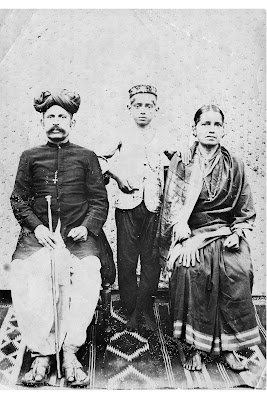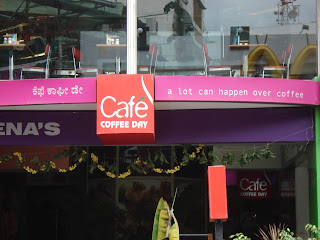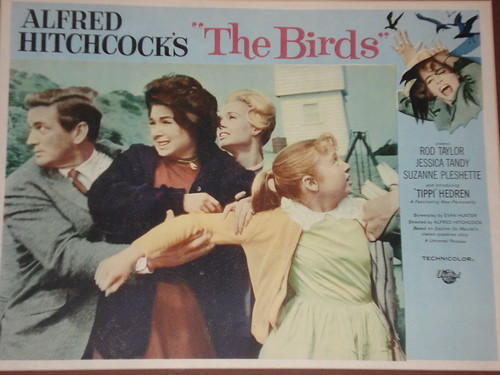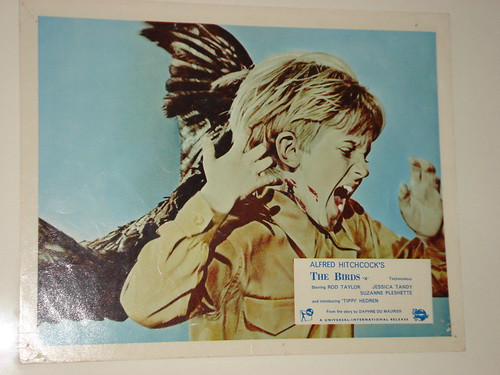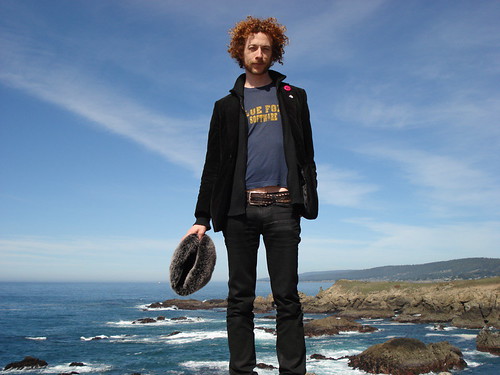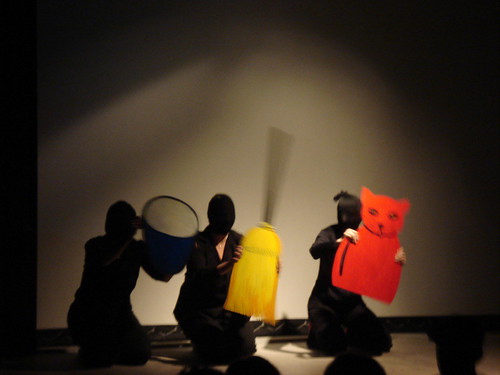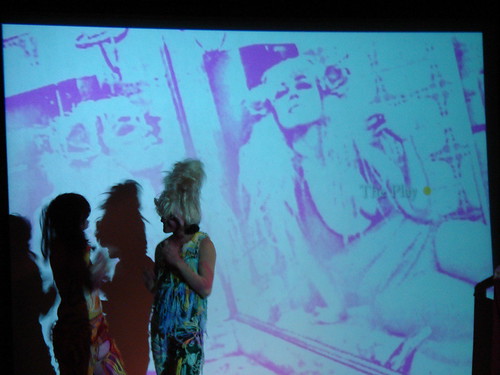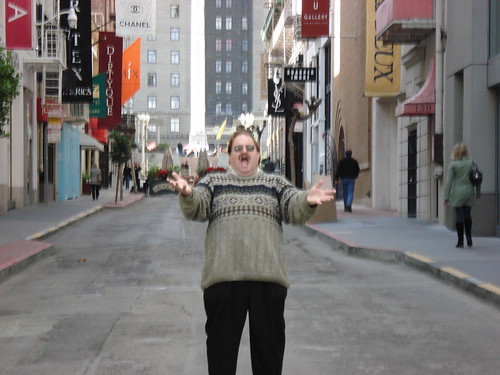I’ve been thinking a lot about the city, the frustration, the growing income disparities, the traffic, the roads, the politics. It’s rich in problems to solve and therefore has an undeniable appeal, I must admit. It’s been said a million times before, but it doesn’t get any less astonishing with repetition that a night at the Leela hotel costs $600 USD or 24,000 Rupees (INR), while right next door, people live in abject poverty.
Starting salary for a college grad at a reputable IT firm can be as high as 70,000 INR a month. This goes up to 500,000 to 1,000,000 INR/month for a very senior level, MBA position, whereas the woman providing home-care for my grandmother makes 2,000 INR a month. And this woman is specially trained in proving elder care, has a home of her own and must support a husband and grandson on her income. Someone just providing cleaning services and general household help would make a lot less, not to mention people working on the streets or begging for their food. As Adam Bosworth said about India in an email to me while he traveled around the country for the first time over the last couple of weeks, "it's wild and turning into two separate cultures."
And so it goes without saying that wages have not kept up with price inflation for the vast majority of the city's residents. If you buy produce off a neighborhood cart that gets wheeled around to people's homes, you can get a handful of veggies for 10-15 INR, enough for maybe two servings, and that's quite affordable for most people. But if you shop at regular retail outlets, a small cup of tea alone can be 50 rupees. Eating out at a reasonably nice restaurant, not a 5-star, not one aimed at tourists, will run you 300 – 350 INR an entrée. A haircut at a modern, clean salon can be 750 for a cut to 3000 INR for a cut and color. A soft-cover guide book to the city that I leafed through recently cost 1,200 INR! At 30 bucks US, it was outrageous even for me.
So it’s no secret that the tech industry here has created a lot of wealth for a relatively small proportion of the economy. But advocates would say the IT influx has created jobs, a larger number of people have a higher standard of living and these companies are paying taxes and abiding lawfully, contributing to the government’s coffers. But here’s the rub. While these companies indeed offer the local governments lots of money to improve infrastructure, in most cases, the politicians refuse it. Why, one wonders? Well, if money is accepted, the payer can dictate terms, handle the construction project internally or god forbid, use the most efficient machinery, processes and materials. This would mean two things to the politicians: (1) they wouldn't be able to hand out contracts to their favored friends, (2) by using state of the art equipment, fewer low wage laborers would be employed making the politician unpopular in certain communities. And so the cycle continues, money is turned down and the economy grows very unevenly without an infrastructure to support it.
And not surprisingly, departments that have jurisdiction over the city don’t talk to each other, in the mildest interpretation, and deliberately sabotage each other, in the most cynical of interpretations. My cousins mentioned examples of roads being freshly tarred and paved by one government body, only to be upturned within days by a telecom company laying down cables or a sewage commission building manholes. The upturned road is then left that way indefinitely.
But there are some encouraging movements as well. My cousins tell me the Times of India recently sponsored a competition for promising young people with a desire to enter politics. The concept being that the talented and educated amongst the next generation need to feel that politics is a viable career option. The mainstream sentiment is that the government is hopelessly corrupt and not worthy of people who want to truly be effective. Everyone was asked, “what is your big idea for India?” The candidates each pitched their visions and the winner is to get a handsome sum of money and will be groomed to implement his or her idea.
So what else will it take besides fresh talent in politics to ensure that India's urban development is sustainable and isn't a ticking time bomb both for the stock market and for the quality of life of its citizens? I’m reminded of the epidemic of obesity in the US. Here is a first world country with unparalleled access to information, education and resources. And yet people flock to fast food outlets, develop self-sabotaging health behaviors, children get diabetes younger and younger, the healthcare system crumbles under the economic pressure, and economists, physicians and elected leaders haven't made much of a dent in a trend that has gotten alarmingly worse over more than a decade. So before we shake our heads at the insanity that is urban life in India, let’s consider the herculean challenge of human behavior change at the societal level in general.
Coming at this from the Health 2.0 perspective, one insight is that positive peer pressure from like-minded groups where members provide support and influence works. Can we think of a way in which transparency and social approval/disapproval can be leveraged for change at the city level in India?
How might this work for a couple of everyday nuisances in the city, say for example, the incessant honking. I spent 45 minutes in an autorickshaw traveling about 3/4 of a mile the other day. I would have walked instead but it was dark and I was carrying an expensive DVD player; my instincts told me to hang out and wait it out. So for 45 minutes, I sat in traffic. The fumes and exhaust were nothing compared to the noise pollution. The honking was non-stop, for no apparent reason, and incredibly loud. I noticed many men on mopeds simply holding down the horn lever for an entire minute. So how do you change that behavior? Do you issue tickets and fines? Many of these people may not even have an address you can find them at, not to mention, we’re talking about hundreds of thousands of vehicles, jam packed on city streets that go on for miles. Imagine the most intricate CG image in Star Wars where you see millions of creature soldiers stretching as far as the eye can see. That’s what traffic is like traffic in Bangalore. So to me, the only way to effect change is to impose social embarrassment. If it became totally humiliating to honk, people would self-regulate. Would this require a public service announcement, or a billboard campaign, or protestors who throw out pamphlets and make themselves a nuisance until people get the message?
The same is true for peeing on the side of the street. Well-dressed men, who clearly work white-collar jobs and have homes with facilities use the side of the road in plain sight. Again, fining people is one thing, but why not a massive billboard and television campaign making vicious fun of people who do that. Consumer goods companies should be able to solve this problem in their sleep. After all we frightened Americans about body odor to sell deoderant, bad breath to sell mints and mouthwash, so we know social embarrassment works on human beings. Why can’t we employ it here for the greater public good?








